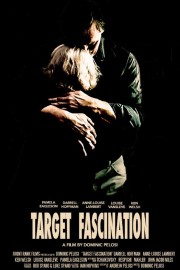Target Fascination
I had to watch “Target Fascination” twice before I felt like I could review it. The film felt…convoluted, I should say, in terms of it’s character relationships, and disconnected on a narrative level. The second time was necessary for me to see if I could understand what director Dominic Pelosi and his brother Andrew (who wrote the script) had going on. The second time felt just as inscrutable to me, which disappointed me, because the central premise is interesting.
The film begins with an old man named Joe (Darrell Hoffman) going to visit his brother at his home. Joe has just gotten out of prison for the rape and murder of a woman many years ago, and he is looking to make amends with the people he affected. The conversation he has with his brother is pleasant enough, but he can’t call Joe his brother anymore due to what he did. We then see Joe talking with a counselor (Clive, played by Ken Welsh) about meeting with his victim’s mother and sister for dinner. Clive has advice, but nothing care prepare either Joe or Caroline and Alice (Pamela Eagleson and Louise Vansleve, respectively) for what could/will transpire when they meet. Joe is frail is seems an ordinary man, something Clive has witnessed himself. When Joe starts to talk about the night he killed their loved one, though, there’s something that comes out that is unnerving for everyone at the table, especially Alice, who is having a difficult time with her marriage, but wants to be there for her mother.
I appreciate very much what Dominic and Andrew Pelosi are trying to express in this film about how the power of communication and forgiveness can be transformative, and make for brighter days ahead. What makes the film (which has a title I feel confounded by, given it’s subject matter) falter, however, is an elliptical sense of storytelling that seems to leave out key moments in the narrative. A scene with Clive near the end reveals the truth about his character, and why it is so important for him to have Joe meet with Caroline and Alice, regardless of whether they forgive him or not, but there are later scenes with Caroline imply a bond with Joe that is never fully explained. Are we to assume that Joe is/was her husband, and he killed his daughter? If so, that development feels a bit tacked on, and not really considered fully. Without that dynamic added into the film, the base notion of forgiving someone who did something so heinous to you is a compelling enough hook for a film to follow for powerful drama. With the implication added, we wish it had been developed stronger to really put the basic tension of the story into focus. As it is, the film feels incomplete, and we wish we had more to invest in emotionally.










